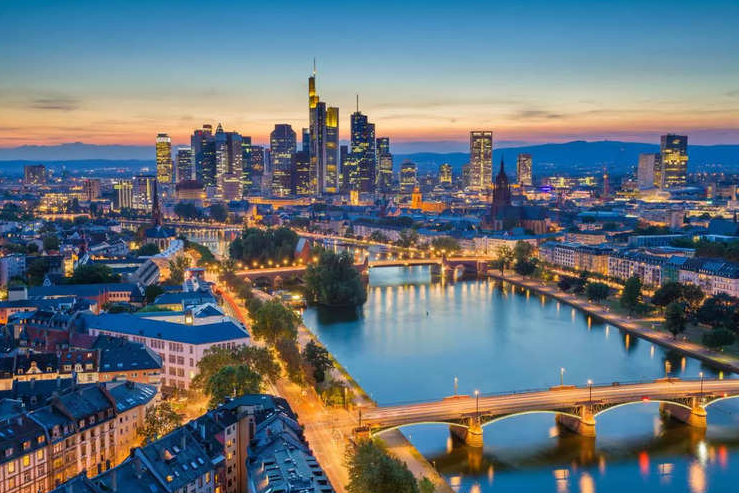Germany, a country renowned for its rich history, diverse culture, and stunning landscapes, offers a plethora of experiences for travelers. From bustling cities steeped in history to picturesque countryside dotted with charming villages, Germany is a destination that caters to all kinds of travelers. Here’s a comprehensive travel guide to help you navigate through this fascinating country.

Getting There
Germany is well-connected by air, with major international airports in cities like Frankfurt, Munich, and Berlin. The country also boasts a comprehensive rail system, making it easy to travel between cities. High-speed trains like the ICE (InterCity Express) can whisk you from one destination to another efficiently.
Best Time to Visit
The best time to visit Germany depends on the experiences you seek. Spring (March to May) and fall (September to November) offer mild weather and fewer crowds, making it a pleasant time for sightseeing. The summer months (June to August) are popular for outdoor festivals and events, while winter (December to February) is magical for those wanting to experience Christmas markets and snowy landscapes.
Top Destinations
- Berlin: The vibrant capital city is a blend of modernity and history. Must-visit sites include the Brandenburg Gate, Berlin Wall, and Museum Island. Explore trendy neighborhoods like Kreuzberg and Prenzlauer Berg, which offer a mix of culture, cuisine, and nightlife.
- Munich: Known for its beer gardens and Bavarian culture, Munich is home to the famous Oktoberfest. Don't miss the Marienplatz, Nymphenburg Palace, and the bustling Viktualienmarkt for fresh produce and local delicacies.
- Hamburg: Germany’s largest port city boasts a rich maritime history. The HafenCity district offers waterfront attractions, while the historic Speicherstadt is a UNESCO World Heritage site. Take a harbor tour to appreciate the city from the water.
- Cologne: Famous for its stunning cathedral (Kölner Dom), Cologne is a lively city with a vibrant arts scene. The Rhine River promenade is perfect for leisurely strolls, and the city hosts numerous festivals throughout the year.
- Dresden: Known as the "Florence on the Elbe," Dresden features stunning baroque architecture. The reconstructed Frauenkirche and the Zwinger Palace are highlights, along with the vibrant art scene and lovely parks.
- Heidelberg: This romantic city is home to Germany's oldest university and is famous for its charming old town and castle. The scenic views from Heidelberg Castle, perched atop a hill, are breathtaking.
- Neuschwanstein Castle: Often described as the fairytale castle, Neuschwanstein is located in Bavaria. It attracts countless visitors each year, and exploring its opulent interiors is a must.
Cuisine and Drink
German cuisine is as diverse as its regions. From hearty sausages and schnitzels to fresh bread and pretzels, food lovers will find plenty to savor. Don’t miss trying traditional dishes such as:
- Bratwurst: Grilled sausage often served with mustard and sauerkraut.
- Sauerbraten: A pot roast, typically of beef, marinated before slow-cooking for tenderness.
- Schnitzel: A breaded and fried meat cutlet, usually served with potatoes or salad.
Pair your meals with local brews, as Germany is famous for its beer. Each region has its specialties, with Bavaria being known for its Weissbier (wheat beer) and Kölsch originating from Cologne.
Cultural Etiquette
Germans appreciate punctuality and efficiency. Arriving on time for appointments or meetings is viewed as respectful. In restaurants, it’s customary to greet your server with a "Guten Tag" and to say "Danke" when receiving the bill. Tipping is appreciated, typically around 5-10% of the total bill.
Transportation
Germany has an extensive and reliable public transportation network. Trains, buses, and trams connect even the smallest towns. Purchase a rail pass to save money if you plan to travel extensively by train. In cities, public transport is often efficient, making it easy to explore without a car.
Outdoor Activities
Beyond its cities, Germany offers stunning natural scenery. The Bavarian Alps provide opportunities for hiking, skiing, and mountain biking. The romantic Rhine Valley is ideal for scenic river cruises and vineyard tours. The Black Forest, known for its dense woods and charming towns, is perfect for hiking and exploring traditional crafts.
Festivals and Events
Germany is known for its vibrant festivals throughout the year. Some prominent ones include:
- Oktoberfest (Munich): A world-famous beer festival held from late September to the first weekend in October.
- Christmas Markets: Held in cities across the country from late November to December, these markets offer festive foods, crafts, and holiday cheer.
- Carnival (Cologne): Celebrated in February, this lively festival features parades, costumes, and parties.
Conclusion
Traveling through Germany offers a delightful experience filled with history, culture, and scenic beauty. Whether you're exploring the bustling streets of Berlin, enjoying the tranquility of the countryside, or savoring delicious dishes, each region provides a unique glimpse into the heart of this fascinating country. With this guide in hand, you're ready to embark on your German adventure!












